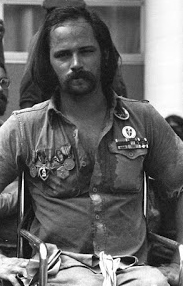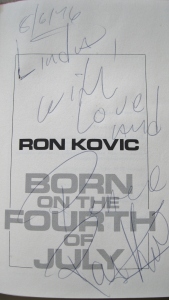First, an admission: I’ve been spending hours studying videos of Donald Trump rallies and interviews, but it has little to do with politics. I’ve become obsessed with trying to figure out the man behind the mask, by watching his body language and listening to his phrasing. I’ve read anything I can get my hands on about his early family life, keeping my eye out for the clues that could lead someone to end up so totally bombastic. I may have found one.
I read recently that Donald’s father had a salient theme when it came to rearing his kids. Apparently, he pounded it into his children that the worst thing in the world that could happen to them was to end up “a nobody.”
I don’t want to be too hard on Old Fred Trump, who’s been dead for almost twenty years. After all, he wasn’t alone in forming his son. Donald had a mother and extended family and a neighborhood that all had a hand in mixing up the nurture/nature equation that begat The Donald.
But if “Don’t end up a nobody” was the single loudest refrain of Donald’s childhood, that’s a fascinating thing to teach a child. If you follow that directive, it means you have to do everything you can to stand out. To win. Never to stop swinging for the fences. Never to say “I’m sorry,” or “I made a mistake.” Never to stop selling yourself. If nothing else, it sounds exhausting.
But, of course, there is something else. Donald and I are roughly the same age, that age when simple math lets you know you have a lot more years behind you than you do ahead of you. I don’t know about him, but I find myself taking stock more often, sifting through what’s really important and what I no longer have time to worry about. And often I think about a clarifying life-moment I had in a Buffalo high school auditorium thirty years ago with my friend JoAnne.
We had tickets to a lecture by Elisabeth Kübler-Ross, the famous psychiatrist who studied death and dying as her life’s work. I’m not sure why we felt compelled to hear her talk about a topic that was — back then — so removed from us. Our children were quite young; all four of our parents were vital and healthy. Death wasn’t exactly on our agenda.
Kübler-Ross was in her late fifties then and the leading expert in the field. She talked for a bit about the phenomena most common to dying people. I thought it was all interesting. Not life changing.
But then she said this: By now, I have sat and talked with tens of thousands of people who knew they were dying. Never, in those many, many conversations, have I ever heard someone say, “I wish I’d had more money. Or a bigger house. Or better jewelry.” She paused. Never once. But too many times I hear them wonder why their children don’t visit, why they have been left alone.
By Trump standards, my own father was a nobody. Beyond our family, our neighborhood, and the people he worked with at Grumman for 40 years, no one ever heard of him. He read books but never wrote one. He earned a salary that afforded us a summer vacation every year, and that was a big deal. He was a company man, a good provider, a faithful husband.
Contrary to the axiom, he did suffer fools gladly and still walked away from those conversations with a smile, never needing to prove himself or tout his accomplishments. The most critical he ever got was his absolute insistence that even an expensive toupee never tricked anyone, a comment launched as a quiet aside in the direction of a man who was sure he was deceiving the universe.
I suspect poor old Fred Trump might have been sorely disappointed in the man my father became.
My dad died at a ripe old age, peacefully, in his sleep. My memories of his wake a few days later are a jumble of greeting old friends and relatives and all of us laughing through tears at our stories about him.
One of the last moments of the evening came when I watched our Hamilton Avenue neighbors — three men who had seen my brothers and me grow up, three men who never knocked but just walked in and out of our house for decades the way characters in 1950s sitcoms reruns do. At the coffin, they put their arms around each other and looked down at my dad and said their goodbyes. One of them was retired NYPD. One was retired FDNY. My whole life, they were tough guys who everyone counted on, who never cried.
They cried that evening. A lovely, silent ovation to a man who was a nobody. An act, I’m guessing, that would have had Fred Trump scratching his head. An act, I’m thinking, that would have evoked nothing more than a disinterested glance from his sad, sad son, who could not begin to get what all the fuss was about.





